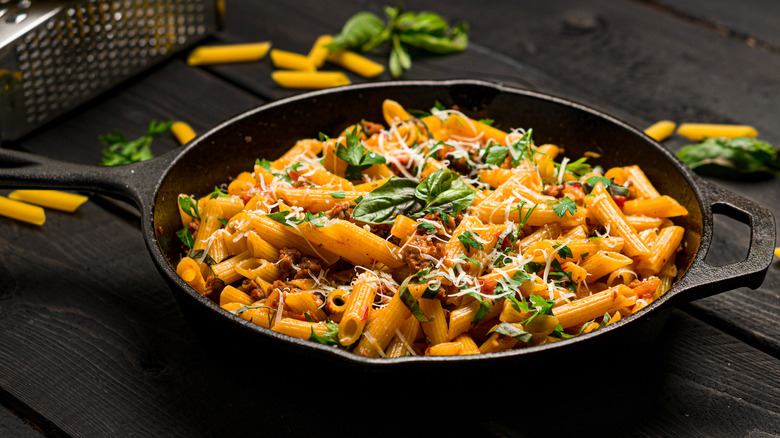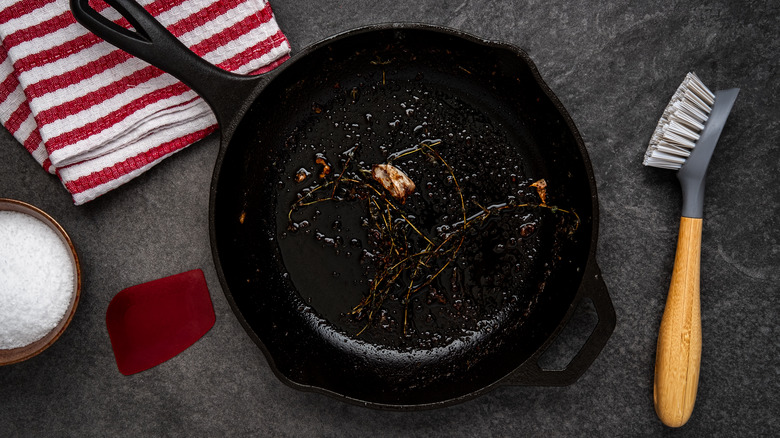Why You Shouldn't Leave Food In A Cast-Iron Skillet Overnight
If you spend a lot of time in the kitchen, you most likely have at least one cast iron pan in your cookware collection. Favored by chefs and home cooks alike, cast iron pans are praised for their ability to distribute and retain heat, their durability, and their versatility, transferring from the stove to the oven with ease. They make the perfect choice for many kitchen tasks, from searing steak to baking cornbread to frying eggs, and a well-made (and well-seasoned) cast iron pan can last for many decades, even getting more resilient over time as the nonstick coating known as "seasoning" builds up on the pan with repeated uses (via Taste of Home).
Seasoning is an important topic when it comes to cast iron pans. Achieved by thoroughly greasing a newly bought pan and either heating it on the stovetop or in the oven, much cast iron cookware can be purchased pre-seasoned these days (via MasterClass). This "seasoning" keeps foods from sticking to the pan and has to be maintained over time by cleaning it with care and immediately drying it out completely, preferably on the stovetop over low heat (via Epicurious). This keeps the pan from rusting, which can break down the seasoning. Another key step to maintaining a cast iron pan's seasoning? Not storing food in the pan.
Don't ever store food in a cast-iron skillet
If you want to maintain your cast iron pan's beautiful nonstick layer of seasoning, always make sure to remove any extra food you've cooked in the pan and store it in a separate container — don't simply cover the pan and store it in the fridge as you might with stainless steel cookware, for example. According to Epicurious, the moisture in the food can degrade that hard-earned seasoning by causing it to rust, and any acidic foods will be especially tough on seasoning. Additionally, although the idea of getting iron toxicity overload from cooking in cast iron pans has been mostly debunked, (via Livestrong) any food sitting in the pan for a prolonged period of time can develop an off, metallic flavor.
But, if you've dragged yourself to bed after a dinner party and inadvertently left a bunch of food in the cast iron pan it was cooked in, never fear: You can always reseason a cast iron pan whose seasoning was damaged. To do so, according to Southern Living, just wash the pan well with hot, soapy water, using the scrubby side of the sponge to remove any rust. Using a paper towel, rub the pan with a thin layer of vegetable oil or melted shortening, then heat it on the stovetop or inside a preheated 500-degree oven (via MasterClass), and your pan will emerge good as new.

